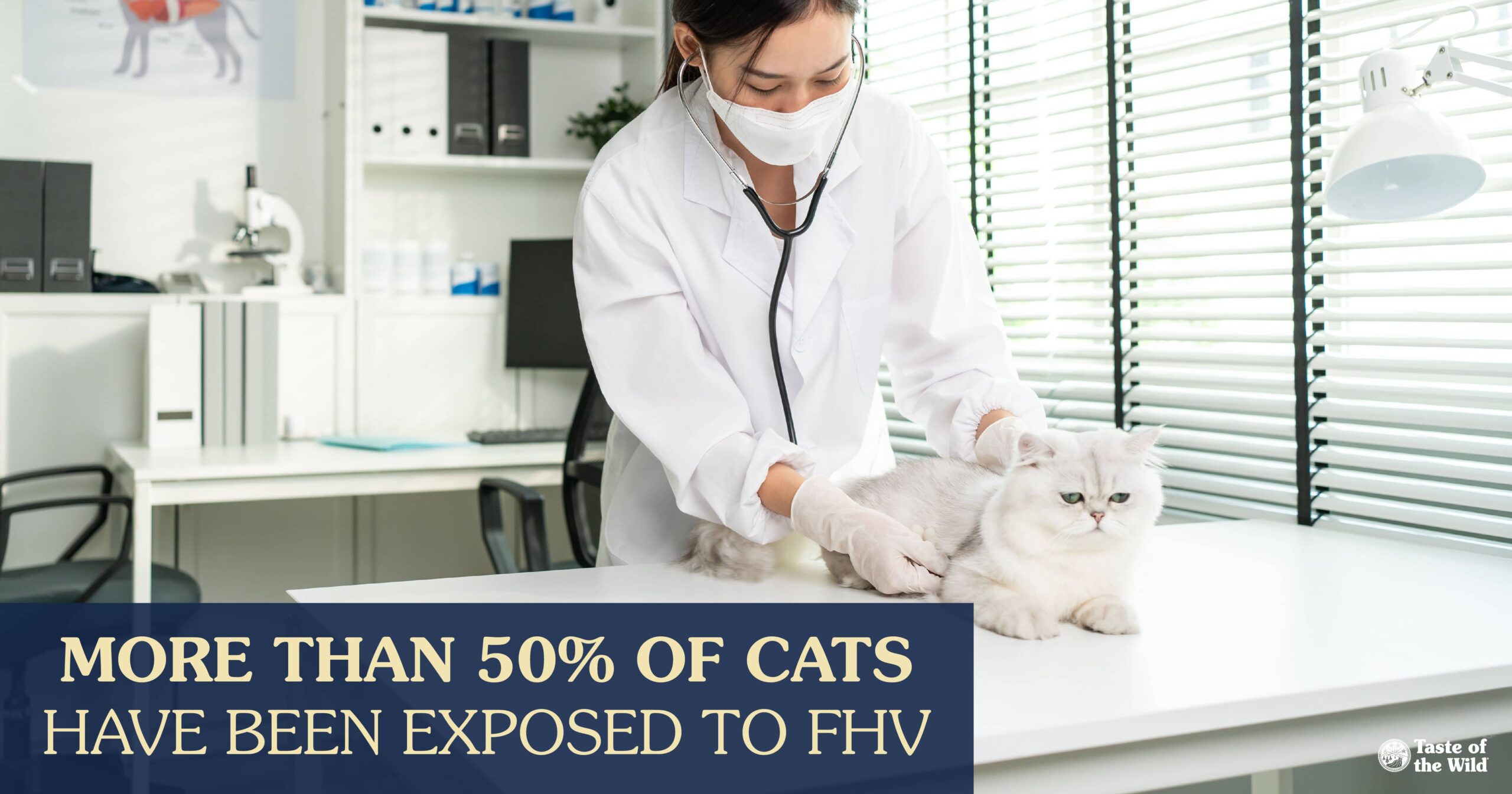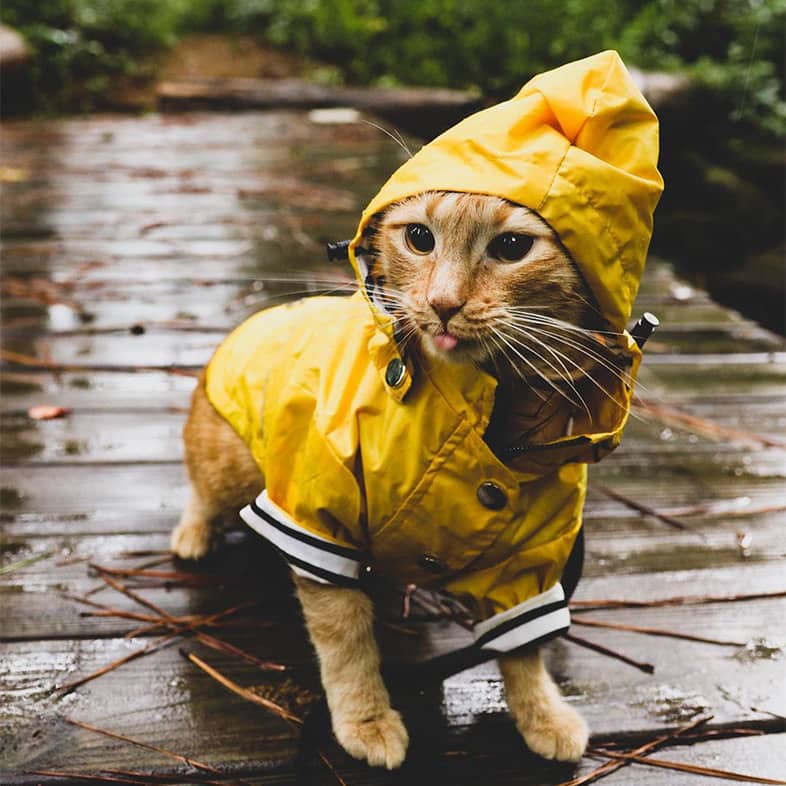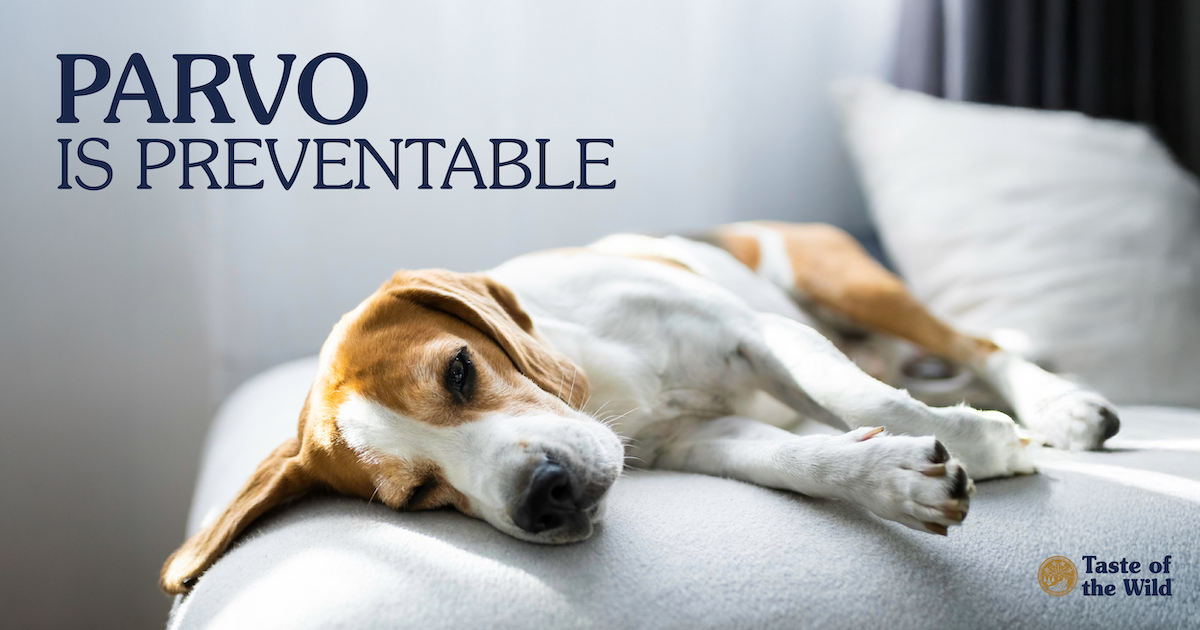What Is Feline Herpesvirus in Cats?
Thursday, November 9, 2023 | Health

The vet just came in to deliver news that your favorite feline has FHV — feline herpesvirus. Initially, panic might set in as your thoughts are, “How? What does this mean for Mittens? What can I do to give my fur-baby the best life possible?” It can be a lot to take in. But know that Mittens can lead a long, healthy life with proper care. More than 50 percent of cats have FHV, with many of them showing few to no signs throughout their lifetimes.
What Is Feline Herpesvirus?
Feline herpesvirus is a common, uncurable virus that causes upper respiratory infections in cats. It’s contracted from other infected cats when your cat has come into contact with an infected feline’s saliva, nose or eye discharge. The virus can live on bedding and grooming tools for 1–2 days, so be sure to talk to your local pet groomer about your cat’s health prior to your visit and ensure that bedding is thoroughly cleaned if giving it to another cat owner. FHV is not transmittable to humans or dogs.
Common Signs of FHV
FHV symptoms can lead to upper respiratory infections or cat flu. While the infection can be acute, the virus goes into a latent stage in the nervous system and is only triggered when a cat becomes stressed. A cat with FHV can have mild to severe symptoms, including:
- Eye discharge
- Pink eye
- Sneezing
- Nasal inflammation
- Runny nose
- Drooling
- Pain or irritation in the throat
- Exhaustion
- Loss of appetite
- Fever
- Coughing
Rare Symptoms of FHV
In rare instances, FHV can cause keratitis and FHV-associated dermatitis. Keratitis is essentially a chronic infection and inflammation of your cat’s cornea. Symptoms involve increased tearing, squinting or rubbing of the eye. Your local veterinarian can help determine if you’re dealing with an upper respiratory infection that has led to eye discharge or if you’re looking at keratitis. Keratitis requires additional medication to get your pet on a healthy track.
FHV-associated dermatitis is also rare. In addition to the common symptoms of FHV, cats with FHV-associated dermatitis develop lymph node enlargement or ulcers in the eyes, mouth, face, trunk, footpads or knees. Cats with FHV-associated dermatitis can usually expect a good prognosis as well. With the help of your veterinarian, cats can recover from FHV-associated dermatitis within three weeks or less. Keep in mind some cats may remain carriers or be prone to relapses. Veterinarians recommend being mindful of these symptoms and reaching out when signs first appear for the quickest recovery times.
Testing for FHV
Your local veterinarian can perform a thorough examination and polymerase chain reaction (PCR) test to see if your cat has FHV. The test is done by swabbing the mouth or nose or taking a swab of your cat’s eye discharge if present. Blood tests are not needed — they are not an accurate way to check for the disease. If you live in a multiple-cat household and one feline tests positive, it is best to get all cats evaluated for the disease.
Life After a Positive Diagnosis
After your cat has been diagnosed, your veterinarian will discuss antiviral or antibiotics options to clear up any infections. If your cat has a severe infection, your veterinarian may recommend hospitalizing your cat so they can receive nutritional support or intravenous fluid therapy they need in addition to antibiotics or antiviral medication.
Once your vet has established a plan to tackle the current infection, they will also discuss long-term care options for Mittens, which might include a change in diet or addition of feline probiotics.
Lastly, lowering your cat’s stress can play a huge factor in their overall health. Did you get new furniture? Change Mittens’ daily routine? Are you preparing for a move? Stressors such as household changes, illness, boarding or travel can reactivate the dormant stage of feline herpesvirus causing them to develop the symptoms listed above.
Talk to your veterinarian about anxiety-reducing supplements or medicines if your cat is persistently stressed and you have made all the positive household changes you can. Those daily options are rather inexpensive as well.
How to Protect Your Cat from FHV
All cats, no matter their age or breed, can contract FHV. Kittens and cats who have a weak immune system are at a higher risk of developing more severe symptoms if infected. The best way to protect your cat from feline herpesvirus is to get the FHV vaccine. Cats eight weeks and older are eligible for the vaccine. It is administered in two to three injections.
Veterinarians then administer a FHV booster every one to three years. These shots do not prevent FHV from being transmitted to your cat if they come in contact with the illness, but they will reduce your cat’s chances of becoming severely sick due to the virus.
Prior to introducing your cat to other felines, it is best to make sure the other cat/kitten has been tested for FHV. If your cat has not been tested, consider the same common courtesy and get Mittens tested before bringing them around other felines.
Along the same lines, prior to boarding, visiting the groomer or establishing care at a new veterinarian’s office, it is best to let them know Mittens has FHV. This will allow the employees to keep your pet, as well as all other cats who visit their establishment, healthy. Remember: FHV is highly contagious among cats.
So, while feline herpesvirus might have been a scary diagnosis to hear during your recent vet visit, you now know ways to keep your furry companion healthy long-term. It’s all about the right care during virus flares, a daily immune system booster and lowering the stress in Mittens’ life.
RELATED POST: Can your pet catch the flu from you?
The information in this blog has been developed with our veterinarian and is designed to help educate pet parents. If you have questions or concerns about your pet’s health or nutrition, please talk with your veterinarian.




